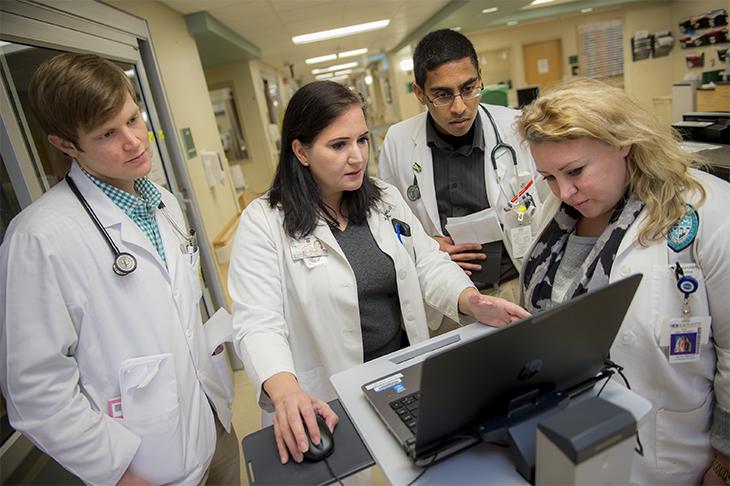The minutes that matter most
The signs that her husband, Charlie, 79, was having a stroke were all too clear to Jean Matkin — the slurred speech, the weakness in his left arm and leg, his struggle to pull himself up after falling in the bedroom of their Lake Vista home.
“At first I thought he had tripped,” she said. “When I asked what had happened, he couldn’t answer. He was trying to push himself back up, but he couldn’t get up. I called 911 and said, ‘I need an ambulance. My husband is having a stroke.’
“I come from a medical family,” Jean Matkin said of her uncle, four cousins and father, Dr. Ernest Celli, all graduates of the Tulane University School of Medicine. “I had heard enough just in conversation to know what was happening.”
“With a stroke, time lost is brain lost. We are absolutely committed to providing aggressive, proven stroke care.”
Dr. Sheryl Martin-Schild
EMS arrived within 15 minutes, loaded him onto a stretcher and into the ambulance and headed straight to Tulane Health System, home of the highly acclaimed Tulane Stroke Program, one of only two Level I/Comprehensive Stroke Centers in Louisiana.
Within two days, Charlie Matkin was back to his old charming self. He was talking normally again, and the weakness on the left side of his body was all but gone. “The medical staff was truly impressive,” his wife said.
His quick recovery came as no surprise to Dr. Sheryl Martin-Schild, a vascular neurologist at Tulane Medical Center and director of the stroke program. Martin-Schild began the program in 2008, and has spearheaded its growth into one of the best in Louisiana.
A Level 1/Comprehensive Stroke Center requires 24/7/365 access to an emergency room staffed with a stroke team, vascular neurological expertise within 15 minutes of patient arrival, the ability to perform labs and CT scan of the head with rapid interpretation, and experienced proceduralists and neurosurgeons.
This story originally appeared in Tulane Medicine magazine. Read more.

